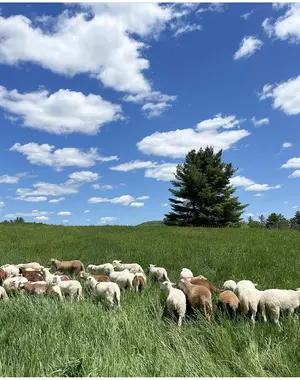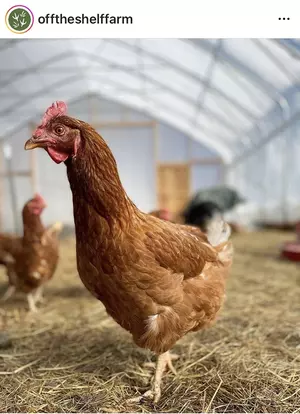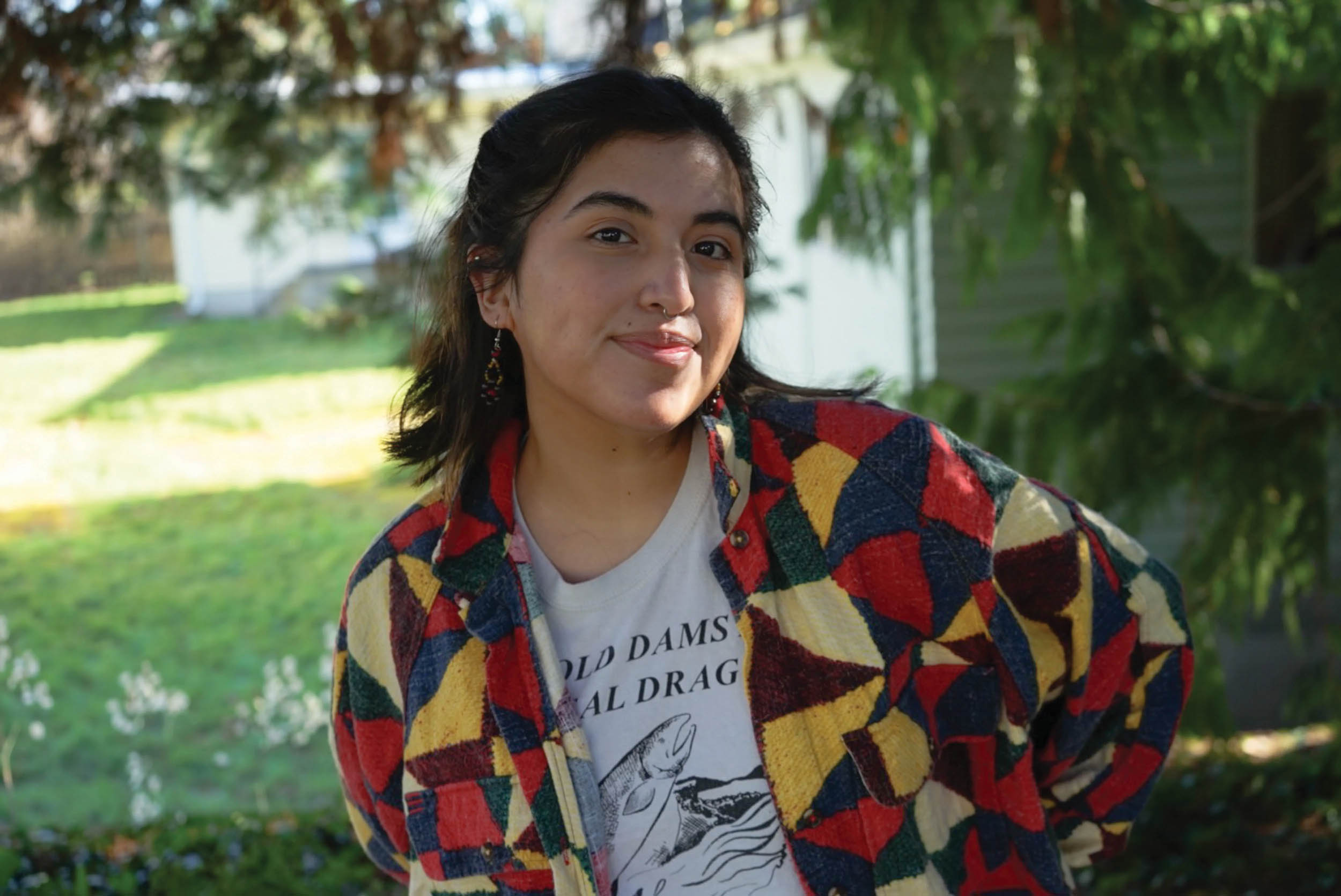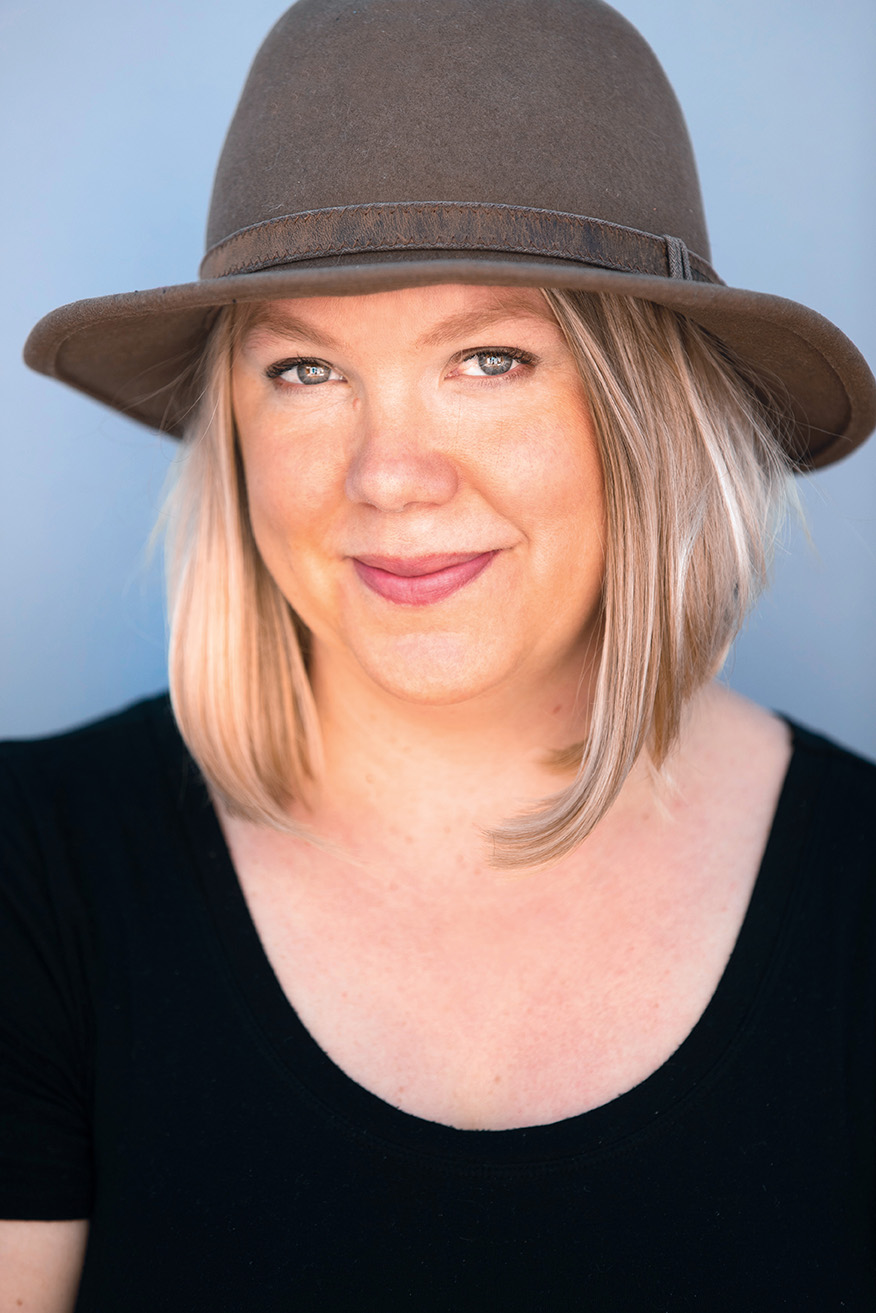Community land preservation may help ensure the future of farming.
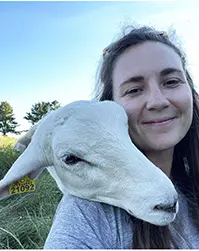
As a livestock farmer in the Berkshires of western Massachusetts, Anna Houston ’12 has built a thriving enterprise that hinges on providing her close-knit community with pasture-raised poultry, eggs, and lamb—all produced on a patchwork quilt of other people’s land.
Since launching Off the Shelf Farm in 2018, Houston and her husband, Rob Perazzo, have relied on handshake lease agreements with neighbors to provide space for their flocks to roam. “We’ve spent six years fertilizing these pastures with our poultry operation, and our sheep and lambs graze on the lush grass we’ve worked so hard to create—none of which we own,” says Houston, for whom long-term land access, via ownership or legal lease, has eluded her. Until now.
In a bout of tremendous community effort, Off the Shelf Farm is on the move to a 79-acre parcel of flat land called River Run. The Berkshire Community Land Trust, a Great Barrington nonprofit, is buying the $1.65 million property, allowing Houston and Perazzo to lease the land at an affordable rate and steward River Run into the future. Chief among the benefits are long-term stability and the ability to recoup their investments in soil and buildings.
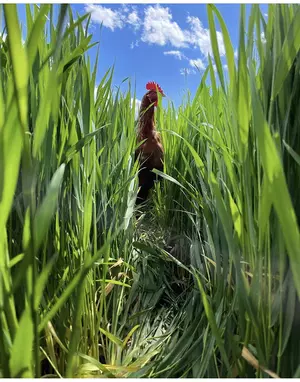
Nationwide, the idea of community supported farmland has been gaining steam, and for good reason: Access to land remains out of reach for many would-be farmers. Across the country, family farms are dwindling due to lack of interest and financial viability. In tourist destinations like the Berkshires, a haven for second-home-owners, real estate prices are perennially sky high; in other regions, including Pierce County, Wash., open space and arable acres face development pressure that’s equally steep.
“The cost of land is one of the biggest obstacles to getting into farming,” says Emelie Peine, director of the International Political Economy program at University of Puget Sound.

